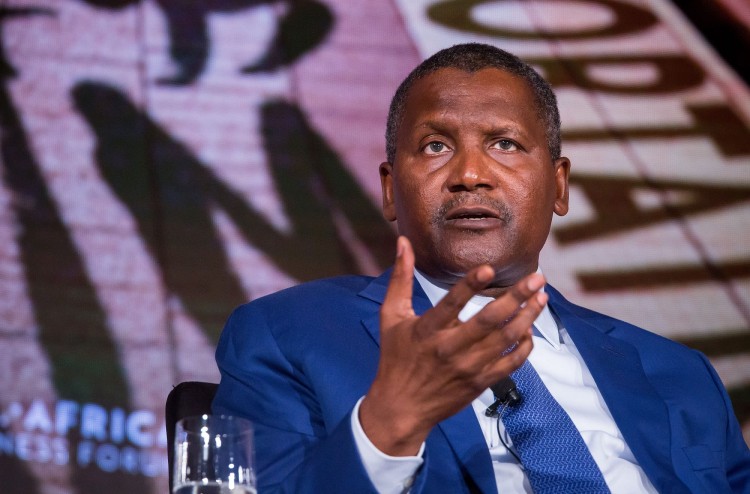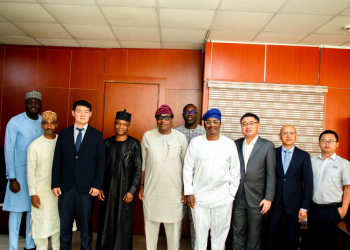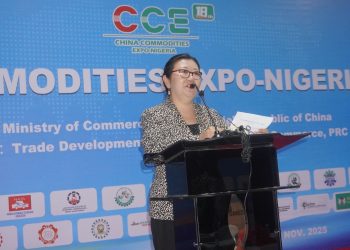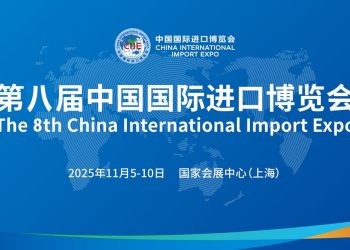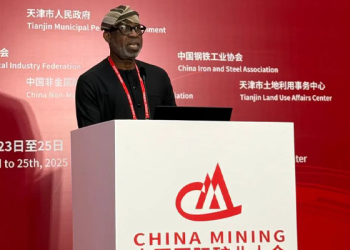Author丨Li Mubai
In China, there are two richest men in three industries: the Internet, real estate, and drinking water.
But in Africa, because of the different stages of social development, it is as difficult to cross the river by touching Ma Yun, Wang Jianlin and Zhong Suisui as the national football team. The only proven path to success is only eight words: Do everything to win by quantity.
In 2010, in front of a group of political and business leaders in Tanzania, a Nigerian named Dangote announced that he would invest 600 million US dollars in the construction of a cement plant in the country.
Faced with such a great thing, the Tanzanian was surprisingly calm, thinking that he was just a “Nigerian liar”.
But it didn’t take long for them to be surprised by Dangote’s “money ability”. In 2011, Dangote’s name appeared on the Forbes rich list, and the Tanzanians finally came to their senses that it was the richest man in Africa who was going to invest in them.
Twelve years have passed, and in the latest Forbes Africa Rich List, Dangote is still number one, and he is also the richest black man in the world.
What’s more, in Africa, where the manufacturing environment is the most difficult in the world, Dangote has built a huge industrial map, spanning cement, sugar, salt, flour, chemical fertilizers, steel, oil and gas, etc. big achievement.
Dangote’s cement company is already the largest cement producer in Africa. It has cement plants in Ethiopia, Zambia, South Africa and other African countries, occupying more than 60% of the market share in Nigeria, which won him the title of “King of Cement in Africa” title.
In the first three quarters of 2022, Dangote Cement’s revenue will reach US$2.556 billion, and its latest market value is approximately US$9.9 billion, making it the company with the highest market value on the Nigerian Stock Exchange.
Dangote’s fertilizer company, sugar factory, and flour mill are among the largest in Africa. The refinery to be built will have a daily production capacity of 650,000 barrels, the largest in Africa, and can cover the oil demand of Nigeria and even the entire African continent.
The large-scale industries have made the Dangote Group a giant in Africa. The market value of its three listed companies once accounted for more than 40% of the total market value of the Nigerian Stock Exchange. In 2022, Dangote Group’s revenue will reach US$4 billion.
Doing business on the African continent cannot do without Dangote.
David Rubenstein, a bigwig in the investment world and co-founder of The Carlyle Group, said: “His name has a lot of influence in Africa, and anyone who wants to do business in Africa knows Dangote.
In 2014, Steve Schwarzman, the king of Wall Street, set up a $5 billion fund to expand capital territory to Africa. The reason why Schwarzman dared to shoot was because he found Dangote. He said bluntly, “We know that operating in Africa is not as easy as in many other places. You have to have a very strong local partner, and we were lucky enough to find Dangote, and he did a great job.”
His success has also caught the attention of the US government, which has long listed him as “a businessman you need to know in Nigeria.
Dangote’s mother’s grandparents were once the richest man in West Africa, and her grandfather and father were both outstanding businessmen. Despite being born with a silver spoon in his mouth, he said: “Being born into a wealthy family does not automatically give you a license to be rich. I have never seen any Nigerian actually make money from an inheritance”.
His achievements come more from business ventures again and again.
In 1977, Dangote found his grandfather, who raised him, and asked to borrow 500,000 naira (about 3,000 U.S. dollars at the time). This was not a small amount at the time, but my grandfather still gave it.
Obsessed with it since he was a child, Dangote had an early interest in starting a business. He sold candy to his classmates when he was in elementary school. The reason for borrowing money from my grandfather was because this young man who had just stepped out of school had his eye on a business.
That year, the second Global Black and African Art and Culture Festival took place in Lagos, the largest city in Nigeria. As part of the cultural festival package, the Nigerian government will build a large residential area and multi-purpose theater. With the end of the civil war, the Nigerian government has invested a lot of oil revenue in infrastructure construction and is building a large number of residences and campuses.
Putting the two pieces of information together, Dangote bets that the cement market is promising. He got a cement import license from his uncle and became a “poor man”. He bought four truckloads of cement every day and sold it at a higher price. He paid off the money he borrowed from his grandfather in three months.
In 1981, he formally established Dangote Company, determined to make a career out of it, but the environment suddenly changed.
After experiencing soaring oil prices in the 1970s, oil prices continued to fall in the 1980s, and Nigeria reduced its investment in infrastructure. The dust of the times fell on Dangote, and the company’s business took a sharp turn for the worse.
While looking for a way out, Dangote also realized that in order to become bigger and stronger, the company must not only rely on a single business, but must diversify. But which industries to enter? Dangote was momentarily indecisive. After research, he found that the grain and oil industry, which is a daily necessities, is rarely affected by the economic cycle.
He stopped sticking to the cement industry and turned decisively to the sugar and flour industry. After shopping around, he decided to import sugar from Brazil and rice from Thailand because it was cheaper.
Cost-effectiveness is not the only means for Dangote to open up the market. Another big trick of Dangote is channels. He has established a distribution network all over the country, which ensures faster delivery than competitors. At the best time of business, the net profit can reach 10,000 US dollars a day.
But for Dangote, who was born in the richest man’s family, these transactions are just small businesses. If you run down this road, you can become a millionaire at most. What Dangote wants to do is big business. Become a big entrepreneur.
In 1994, Dangote went to Brazil to look for new opportunities, and was shocked by the degree of industrialization there. A company he visited could produce 503 different products. In contrast, Nigeria has a weak manufacturing base, and even necessities such as sugar, salt, and flour still rely on imports.
Dangote is determined to skip the middleman and engage in production directly, which can not only promote the development of local manufacturing, but also have greater profit margins. Subsequently, Dangote built a flour mill, a sugar refinery, and a salt factory in Nigeria. Dangote’s strategy is: use more business to increase the company’s ability to resist risks. And every time he enters an industry, Dangote is a big deal.
“We don’t want to be second in anything, we want to be number one. In the worst case, we can be number two and be expected to be number one,” Dangote has said.
Dangote Flour Company, founded in 1999, was originally a simple mill with a production capacity of only a few hundred thousand tons. However, in the following years, Dangote expanded its production capacity by 8 times. In 2000, Dangote established Dangote The sugar industry company expanded its annual output to 1.44 million tons soon after its establishment.
Relying on the low price advantage brought by the past sales channels and scale, products with Dangote packaging quickly opened up the market. In 2007 and 2008, Dangote sugar company and flour company went public successively, with revenues reaching US$270 million and US$450 million respectively.
But what really made his fortune take off was his old business—cement, and oil refining business.
In 2003, Dangote was in big trouble.
At that time, Dangote was building a cement plant in Kogi State, Nigeria, with a capacity of 5 million tons.
The local soil is hard, and the depth of the foundation is the key to the early construction. The expert team sent by Dangote gave him a firm answer—two meters is enough, and all the drawings are based on this design. In order to catch up with the schedule, Dangote started work without conducting a comprehensive assessment.
The walls around the plant were almost finished before the construction team told Dangote that the foundation was too shallow. With millions of dollars invested, Dangote had no time to complain, and asked the construction team to revise the design drawings.
The result surprised Dangote. The factory had to add 1,000 piles, and Nigeria did not have enough drilling rigs for piling, so it had to be imported from abroad. Adding various construction costs, the funding gap suddenly expanded to 500 million US dollars.
To add insult to injury, the Nigerian government’s promise to build a natural gas pipeline to power the region has never materialized. For Dangote’s factory to operate smoothly, he also needs to build this pipeline himself, which requires even more funds.
Watching the workers sweating profusely, Dangote was anxious. The major banks of the Nigerian Bank are afraid to provide this loan because the risk is too great.
But Dangote doesn’t want to throw in the towel. As Nigeria’s infrastructure builds up, so does demand for cement. The combined production capacity of all domestic cement plants is less than 2 million tons, which can only meet 23.5% of Nigeria’s cement demand.
In 2002, in order to encourage local enterprises to produce cement, the Nigerian government began to control the import of cement, which made Dangote determined to build up cement production capacity.
At the critical moment, Dangote found the International Finance Corporation under the World Bank to lead a loan of 479 million U.S. dollars, and he himself took out another 319 million U.S. dollars, which was almost all of his belongings. For this reason, he sold a large number of overseas properties and invested in the project.
“I knew that if this project failed, the company might be over.” He recalled afterwards.
Dangote won the bet, and the plant was successfully completed in 2007. Since then, Dangote has continued to expand its cement territory in Africa. The success of the cement business has brought the Dangote Group to a new height. By 2010, Dangote Cement had revenues of $1.3 billion, allowing the group to pay off all foreign debt and start accumulating cash.
Unlike other rich Africans who keep most of their money in the bank, Dangote has been reinvesting most of the profits from his business operations in expanding his business. In his view, one must be aggressive in running a business, and only by betting big can he win far.
In 2013, Dangote gambled again, investing $9 billion to build the largest refinery on the African continent. Dangote has a plan to more than quintuple his current fortune and join the top five richest people in the world, and the refinery is one of the ways he can do that.
Nigeria’s oil reserves are as high as 37.2 billion barrels, ranking tenth in the world. Many local rich people started their fortunes from oil. But Dangote has always stayed away from the oil industry because oil has always been a breeding ground for corruption. “We don’t want to be part of corruption,” he once said.
Although 90% of export income comes from oil, most of the fuel used by Nigerians has to be imported due to the backward manufacturing industry. Seeing the huge cash flow accumulated by the company, Dangote was shaken, and he decided to break this situation.
“When we budgeted our income for the next few years in 2015, and considering our investment in fertilizers, there were still billions of dollars left. The only ones that allowed us to have such a large amount of investment were naturally oil and gas companies,” he once said. express.
In 2016, the construction of the refinery started, and many Chinese companies such as Sany Heavy Industry and Xugong Group participated in it. It may be officially put into operation in the second half of 2023. Dangote estimates that this will bring the company’s revenue to US$30 billion in the next two years . Some agencies predict that Dangote’s net worth is expected to rise to 30 billion U.S. dollars by then, which will set another wealth record for black rich people.
In April 2012, a group of special guests came to Obagana, a city in central Nigeria. The most prominent guests were the then Nigerian President Goodluck Jonathan and several government ministers, who wanted to celebrate the start of a large cement production line of Dangote Company here.
As Africa’s richest man, Dangote’s relationship with the government has been criticized by the outside world. In the 2003 presidential election, he contributed more than 200 million naira ($2 million) to Obasanjo’s re-election campaign. He was also appointed to the economic management team by President Goodluck Jonathan in 2011.
Critics see Dangote as a predator who uses his connections to tip the competitive landscape in his favor and force out potential rivals.
Brian Brown, the former US Consul General in Nigeria, once said bluntly that “Dangote is a harmful alien who enjoys great preferential treatment: on the one hand, he has exclusive import rights; The Nigerian government imposes heavy taxes or bans imports.”
According to an e-mail released by the U.S. government, “During the 1980s and 1990s, Dangote “had exclusive rights to import sugar, cement, and rice, and he used this advantage to do big business and undercut competitors.” But Dangote Gert categorically denies it.
Dangote has made no secret of his rapport with several former presidents, while claiming he never used his government connections to engage in inappropriate behavior. “If you want to do business, you have to have a good relationship with the government, if not, how do you get the government to listen to your complaints?” he explained.
In his view, old-fashioned protectionism is the only way to build African industry. He bluntly stated that “when foreign competitors enter our market and dump their products, there is no incentive to build our own industry.”
Former Nigerian President Jonathan once said bluntly, “I think those who criticize Dangote have contributed less than 5% of what Dangote did to the country.”
Dangote’s layout in cement, agriculture and other fields has reduced Nigeria and even Africa’s dependence on imports, and Dangote has also transformed his wealth into some charitable causes. Dangote’s charitable foundation, established in 1994, has helped build a business school in Nigeria and is working with the Bill & Melinda Gates Foundation to tackle chronic malnutrition in Africa, among other issues.
“As a businessman and entrepreneur, I want people to remember me doing a lot of big, challenging things and being successful, but I guess I’d rather be remembered for my philanthropy, and once I Most of the projects are completed, and I intend to return most of my money to the society,” he once said.
Dangote is also one of the few rich people willing to bet on Africa. While governments are doing their best to create a favorable investment environment for local and international investors, many wealthy locals would rather invest outside of Africa than take the risk of investing locally.
Dangote has always insisted on investing in Africa. He once said bluntly, “If I had $5 billion, I would invest it in Nigeria without hesitation.” He has also appealed more than once to “stop providing aid to Africa. Instead, invest in the local area, so that you will make money, and Africans will also make money.”
In 1999, when he first entered the manufacturing industry, Dangote thought he was too radical. It wasn’t until he watched “Legend of American Business Tycoon” that he realized that their courage was too much.
He believed that everything should be done big, and as long as another person has done it, he can also be competent.
On Dangote’s desk is a badge engraved with “Nothing is Impossible” (everything is possible), which is the formula for success he has always pursued.





























